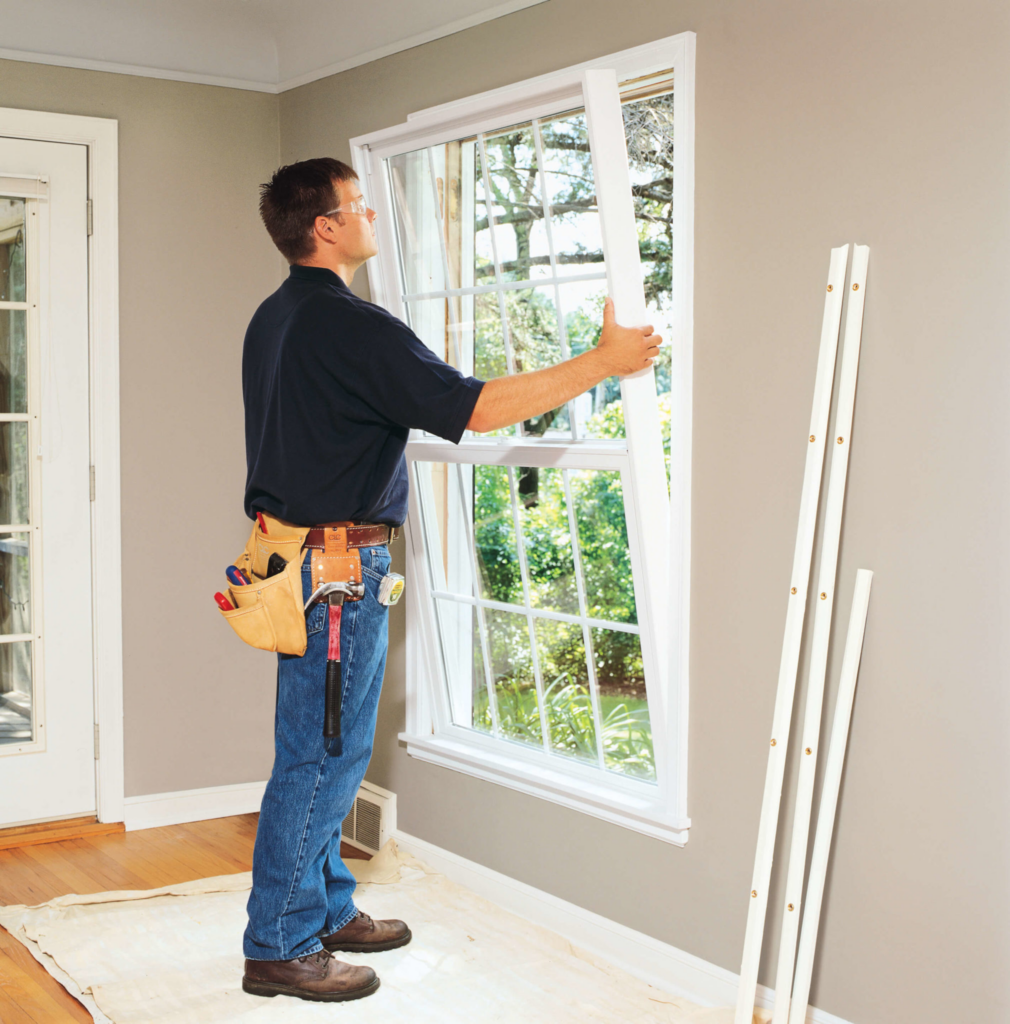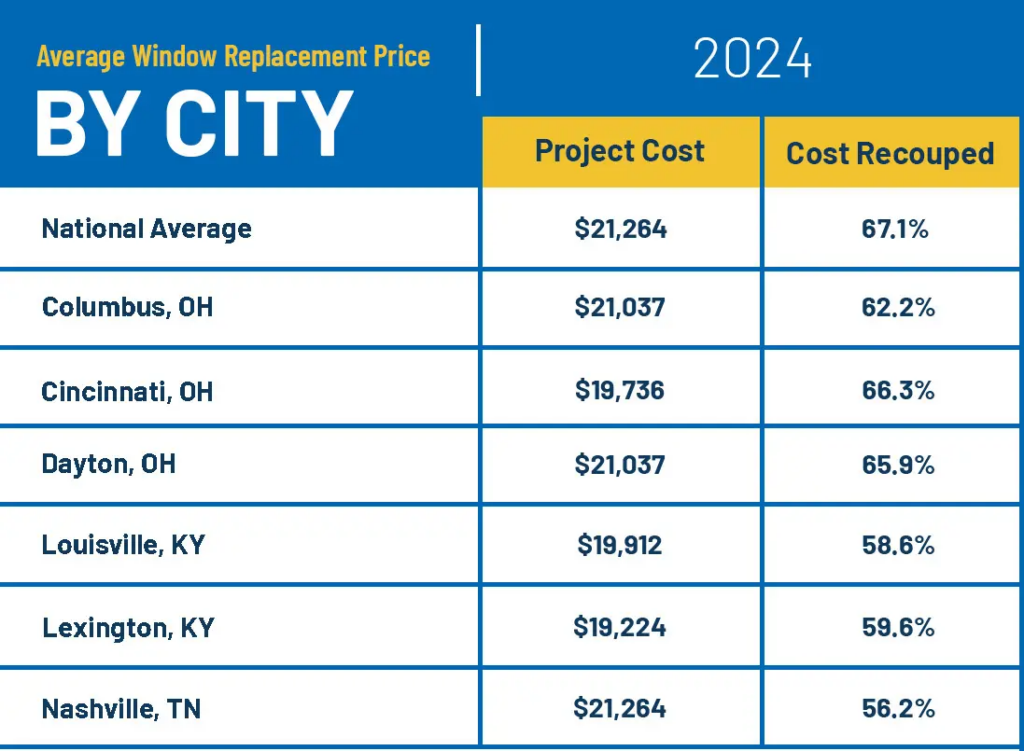Replacing windows in your home can be a significant investment, but it’s an essential project for improving energy efficiency, enhancing curb appeal, and increasing property value. Understanding the costs involved is crucial to making informed decisions. This guide breaks down the factors affecting window replacement costs, helping you budget effectively.
Factors Influencing Window Replacement Costs
When considering window replacement, several factors will influence the overall cost. The type of window, the materials used, installation complexity, and regional pricing variations all play a role in determining the final price.
- Type of Window
The type of window you choose significantly impacts the cost. Standard double-hung windows are often less expensive compared to bay windows or custom designs. Sliding windows, casement windows, and picture windows each come with their price variations. Specialty windows, such as those with unique shapes or custom sizes, can increase the cost considerably.
- Materials Used
Window frames are available in various materials, including vinyl, wood, aluminum, and fiberglass. Vinyl windows are generally the most affordable, offering good insulation and low maintenance. Wood frames provide natural beauty and excellent insulation but require more maintenance and a higher upfront cost. Aluminum frames are durable but less energy-efficient, while fiberglass offers a balance of durability and insulation at a higher price point.
- Installation Complexity
Installation complexity can also affect the cost. Replacing windows in a standard frame is relatively straightforward and less expensive. However, if structural changes are necessary, such as resizing the window opening or repairing damaged frames, the costs can increase significantly. Additionally, multi-story homes or windows in hard-to-reach areas may require specialized equipment, adding to the expense.
Average Cost of Window Replacement
The average cost to replace windows in a home can vary widely based on the factors mentioned above. On average, homeowners spend between $300 and $1,200 per window, including installation. For a typical home with 10 windows, this translates to a total cost ranging from $3,000 to $12,000.
- Budget Options
For budget-conscious homeowners, vinyl windows offer an economical choice without sacrificing quality. Prices for vinyl windows, including installation, typically range from $300 to $700 per window. These windows are energy-efficient and require minimal maintenance, making them a popular choice for many.

- Mid-Range Options
Wood and fiberglass windows are considered mid-range options, offering better aesthetics and insulation compared to vinyl. Wood windows can range from $600 to $1,000 per window, while fiberglass options might cost between $600 and $900 each. These materials provide a good balance between cost, durability, and energy efficiency.
- Premium Options
For those seeking premium options, custom designs, and high-end materials like aluminum-clad wood or triple-pane windows, the cost can exceed $1,200 per window. These windows offer superior energy efficiency, aesthetics, and longevity, making them an excellent investment for long-term savings on energy bills.
- Additional Costs to Consider
In addition to the base price of the windows and installation, there are several other costs to consider when budgeting for window replacement.
- Permits and Inspections
Depending on your location, permits and inspections may be required for window replacement projects, especially if structural changes are involved. Permit fees can range from $50 to $200, and inspections may add additional costs.
- Energy Efficiency Upgrades
Investing in energy-efficient windows can lead to long-term savings on heating and cooling bills. Look for windows with Energy Star ratings, low-E coatings, and gas fills for improved insulation. These features may increase the upfront cost but offer significant savings over time.

Removal and Disposal of Old Windows
Removing and disposing of old windows is another cost to consider. Many contractors include this service in their quotes, but it’s essential to confirm. Disposal fees can range from $50 to $200, depending on the number of windows and local waste management regulations.
How to Save Money on Window Replacement
Replacing windows can be expensive, but there are strategies to help reduce costs without compromising on quality.
- Compare Multiple Quotes
Getting quotes from multiple contractors is crucial to finding the best price. Be sure to compare not only the cost but also the materials and installation methods used. A detailed quote that outlines all expenses can help you avoid unexpected costs later.
- Timing Your Purchase
Window replacement is often less expensive during off-peak seasons, such as late fall and winter. Contractors may offer discounts during these times to keep their schedules full. Planning your project during these months can result in significant savings.

- DIY Installation
For those with the necessary skills and tools, DIY window installation can save on labor costs. However, it’s essential to ensure proper installation to avoid issues with insulation and window operation. If you’re unsure, hiring a professional is advisable to ensure the job is done correctly.
Conclusion
Window replacement is a worthwhile investment for homeowners looking to improve energy efficiency, increase property value, and enhance curb appeal. Understanding the various factors that influence costs, such as window type, materials, and installation complexity, is crucial for budgeting effectively. By considering additional costs and employing strategies to save money, you can make informed decisions that suit your financial situation and meet your home improvement goals.
FAQs
1. How long does it take to replace windows in a home?
The time required for window replacement can vary depending on the number of windows and installation complexity. Typically, professional installers can replace 10 to 15 windows in a single day.
2. Are there financing options available for window replacement?
Yes, many window replacement companies offer financing options to help homeowners manage costs. These may include payment plans, loans, or credit options with competitive interest rates.
3. What are the benefits of upgrading to energy-efficient windows?
Upgrading to energy-efficient windows can lead to lower heating and cooling bills, improved home comfort, and a reduced carbon footprint. Additionally, they may qualify for tax credits or rebates, further offsetting the initial investment.
4. How often should windows be replaced?
Windows typically last 15 to 20 years, but this can vary based on material quality, installation, and environmental factors. Signs that it’s time to replace windows include drafts, condensation between panes, and difficulty opening or closing.
5. Can I replace my windows one at a time?
Yes, replacing windows one at a time is an option if budget constraints exist. However, it may be more cost-effective to replace multiple windows simultaneously due to potential discounts on materials and labor.